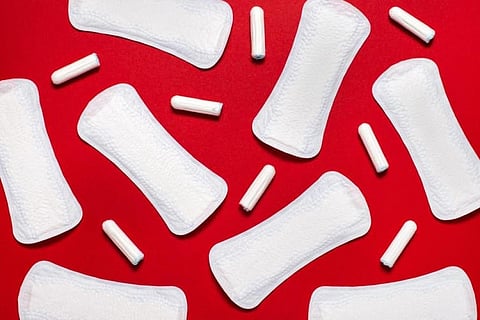Periods in a pandemic: Women, girls in low-income settlements need more support
We conducted research eight years ago on menstrual health and hygiene in an informal settlement in Nairobi, Kenya’s capital. We found that women and girls grappled with many challenges, predominantly because they lacked resources, and this meant that they couldn’t manage their periods safely or with dignity.
They had limited access to sanitary products, clean water, and safe and private toilet facilities. Many of them suffered from stigma and embarrassment as a result.
Today, nearly a decade later, little has changed. Many women and girls living in low-income areas in sub-Saharan Africa continue to face practical and psychological challenges to managing menstruation. When it comes to Kenya, a recent study done in Nairobi’s low-income areas suggests that things are still the same.
What is becoming apparent, through studies and conversations with other academics in the menstrual health and hygiene field, is that the measures taken to slow the spread of the novel coronavirus disease (COVID-19) may have made things worse for women and girls in low-income areas.
In Kenya, these measures have included restricted movements and closures of some businesses. They have had devastating economic effects and people have started to struggle financially. Many are missing meals, have lost work and say that the cost of living is going up.
The financial difficulties make it even harder for women and girls to access sanitary products.
A recent study by the Population Council in five informal slum settlements in Nairobi, Kenya, for example, found that the pandemic has already affected the ability of women and girls to buy sanitary products. One-third of the women in their study said that they weren’t able to buy sanitary pads.
Access to water has always been an issue in low-income settlements where majority of households lack safe and piped water. The requirement that people wash their hands to stop the spread of the virus is adding to pressures on this limited resource.
An additional challenge that schoolgirls face is that schools are now closed. Approximately four million girls in public schools in Kenya receive sanitary products through the government’s Sanitary Towels Programme, which was launched in 2011.
School closures mean that these girls are unable to access the free sanitary pads, making it difficult for them to manage their periods. In situations like this, they will usually resort to the use of cloths and other materials which are less hygienic and associated with greater risk of discomfort, and leakage.
What needs to happen?
In a recent brief, the United Nations Children Fund (UNICEF) outlines several “essential considerations to ensure continued [menstrual health and hygiene] during the pandemic”. Among the considerations are ensuring
-
the provision of menstrual management products by including sanitary pads among the list of essential commodities and by removing barriers to their manufacture and supply; and
-
that communities have basic water and sanitation facilities.
For the Kenyan government, the COVID-19 pandemic highlights the need to fast-track the implementation of the recently signed National Menstrual Hygiene Management Policy. The policy prioritises the needs of the vulnerable and disadvantaged in the community.
The idea is that as the Kenyan government implements initiatives to support vulnerable groups during the pandemic, it should also take into account the menstrual health needs of women and girls.
In particular, the government must ensure that women and girls have access to affordable, hygienic sanitary products and clean water and sanitation facilities during and beyond the pandemic. For example, the government can work with development partners and non-governmental organisations to provide dignity kits to vulnerable women and girls.
This article is republished from The Conversation under a Creative Commons license. Read the original article.

